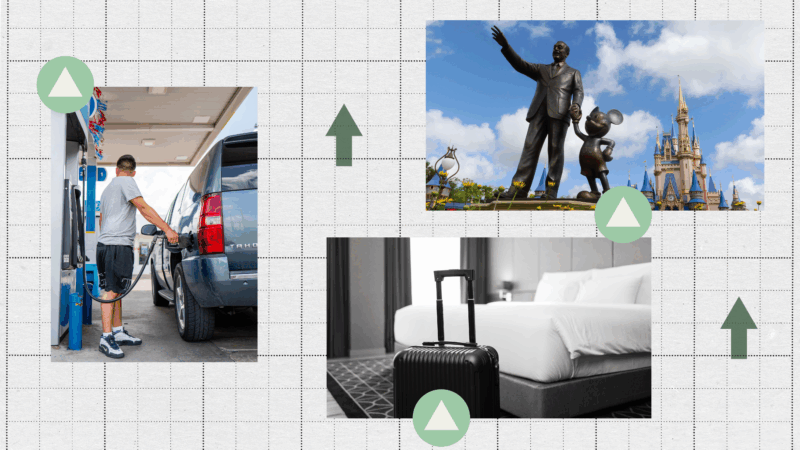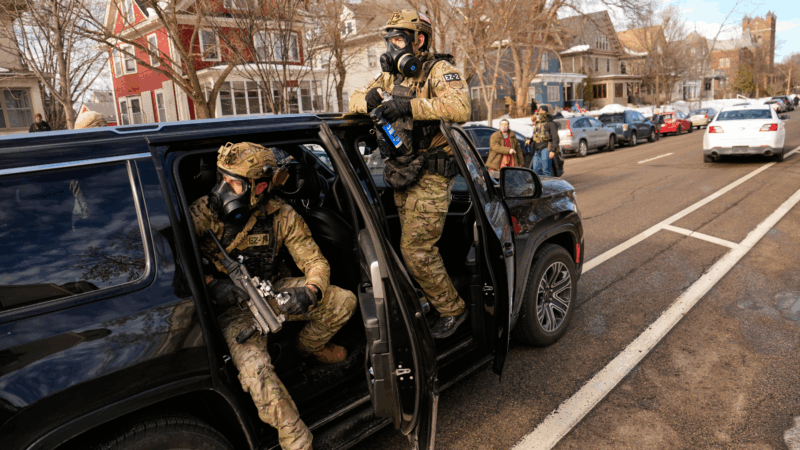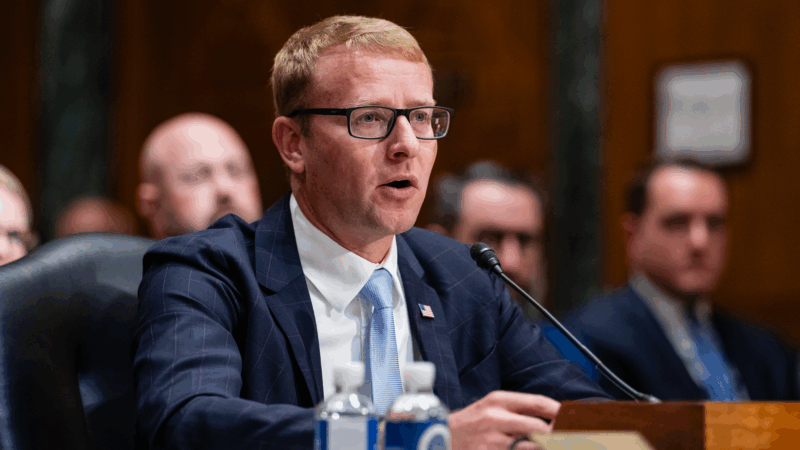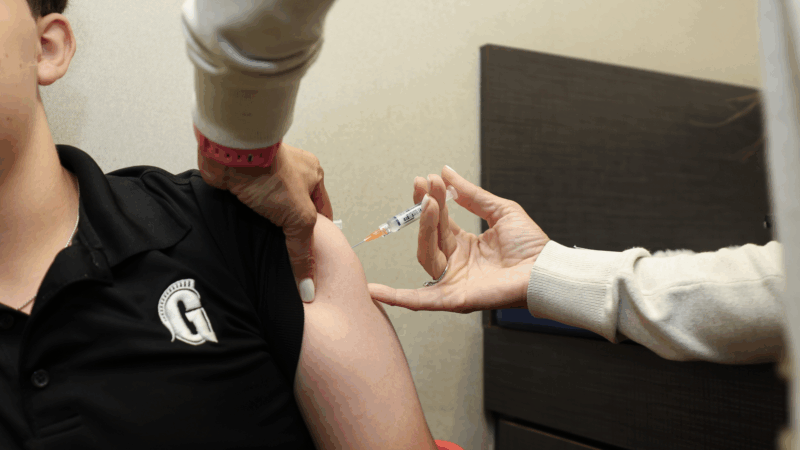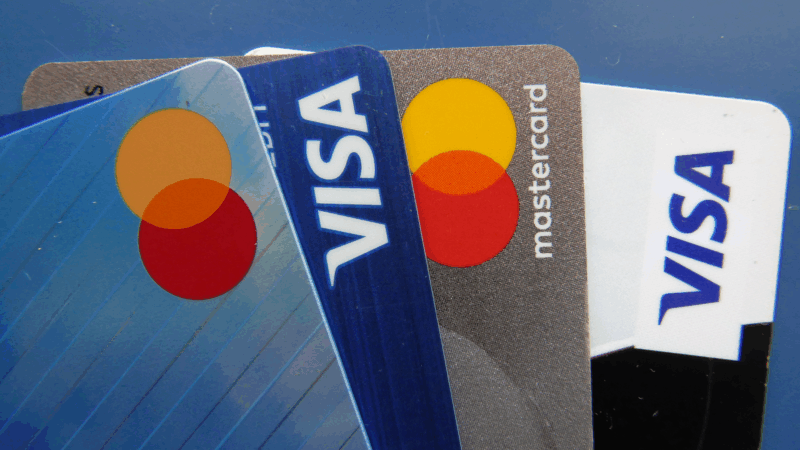How rising costs are changing the way Americans travel
NPR’s series Cost of Living: The Price We Pay is examining what’s driving price increases and how people are coping after years of stubborn inflation. How are higher prices changing the way you live? Fill out this form to share your story with NPR.
What’s the item?
Travel
How has the price changed since before the pandemic?
Up 20% since August 2019, according to the U.S. Travel Association and the Bureau of Labor Statistics.
Why has the price gone up?
The cost of gas, lodging and recreation have all risen sharply since the pandemic. Airfares climbed more slowly, but the cost of food and beverages in restaurants soared by over 30%. And travel experts say that’s only part of the story, as rising costs for housing, groceries and power leave less discretionary income.
Americans love to travel. But rising costs are making it harder for many of us to roam as much as we’d like.
Before the pandemic, Ammy Woodbury and her family used to visit Disneyland three times a year. Now she’s planning another trip to the Happiest Place on Earth for next summer, and she’s struck by how much prices have jumped.
“Okay, well, I guess we’re not doing that anymore,” Woodbury said. “We’ll just go once a year, it’ll be fine.”
Woodbury, who lives in Santa Clara, California, says it’s not just the price of tickets to the park that’s higher. It’s also gas, restaurants and lodging.
“The hotel rooms are profoundly more expensive than they were before the pandemic,” she said. “And it’s just amazing how fast it’s gone up.”
Loading…
The cost of travel is up 20% since 2019, according to government data compiled by the U.S. Travel Association. At the same time, travel experts say rising costs across the board are leaving less discretionary income in Americans’ pockets.
“Things are a little tighter this year,” said Lorraine Sileo, a senior analyst at Phocuswright, a market research company. “So when you’re looking at your spending, relatively speaking, where does travel fit in when you have other expenses.”
The industry these days is a tale of two different markets. At the high end, luxury travel is setting records. But lower- and middle-income vacationers are squeezed, Sileo said. They still want to travel, but they’re feeling the pain of rising costs.
“We know Americans love to travel. We’ve prioritized experiences, prioritized spending time with family and friends,” Sileo said. “But you’ll think a little differently about it.”
NPR asked in an online survey how rising costs are affecting Americans’ lives. Dozens of people told us they can’t afford to go anywhere this year, and many who are traveling say they’re dialing back.
“With the cost of everything else going up: groceries, power, you name it. The cost of living has just jumped,” said Chris Neagle of Battle Creek, Mich. “I think everybody’s seeing it and everybody’s feeling it.”
Neagle would like to visit his son and grandson in Texas, as well as his sisters, who are scattered around the country. But he says the rising costs of pretty much everything have made that impossible.
Neagle and his wife are still planning a vacation this fall, but they’re not going to Ireland like they originally hoped.
“We are taking a trip to Vermont to go hiking and leaf peeping,” Neagle said. “But we’re driving and the cost was modest compared to going to Ireland, for instance. So we made kind of a value decision there.”
Inflation is forcing a lot of travelers to scale back their plans.
“People are traveling more by car and doing more road trips, as an attempt to save costs in terms of transportation,” said Becky Liu-Lastres, a professor at the Dedman College of Hospitality at Florida State University.
“They will choose nearby destinations, meaning that they are not going overseas. They’re more likely to travel domestically, and they will cut short the length,” Liu-Lastres said.
For some travelers, staying closer to home hasn’t been all bad.
“It’s really forced us to think a little bit more creatively about some of the places that we might go,” said Erin Berryman of Fort Collins, Colo.
Berryman and husband have been camping in the Rocky Mountains, she said — not in the big campgrounds in famous national parks, but in more secluded spots by the side of gravel roads. They’ve found one campsite that’s so quiet and off the beaten path that Berryman declined to tell us where it is.
“I don’t know if I’m going to say, because I don’t want to give it away,” she laughed.
Berryman and her husband love traveling abroad, too. But for now, they’re happy staying in their scenic backyard.
Offshore wind developer prevails in U.S. court as Trump calls wind farms ‘losers’
A federal judge ruled Monday that work on a major offshore wind farm can resume, handing the industry at least a temporary victory as President Trump seeks to shut it down.
Minnesota officials sue to block Trump’s immigration crackdown as enforcement intensifies
More than 2,000 federal immigration agents are in Minnesota, and that number is expected to increase. On Monday, an NPR reporter witnessed multiple instances where immigration agents drove around Minneapolis — and in parking lots of big box stores — and randomly questioned people about their immigration status.
Elon Musk’s X faces bans and investigations over nonconsensual bikini images
After the social media app's AI chatbot started generating sexualized images of women and children, two countries have blocked it and several more have launched investigations.
Trump administration tells states to end ‘orphan tax’ on foster kids
There's a growing move to end what some call "the orphan tax" and stop states from taking benefit checks from children and youth in foster care.
Flu shot recommendation for kids dropped just as the illness rages
The Centers for Disease Control and Prevention dropped its advice that kids get an annual flu shot at a time when flu cases and hospitalizations are surging.
Trump calls for a 10% cap on credit card interest rates
With credit card interest rates near modern highs, President Trump says he wants to cap the rates for one year.

